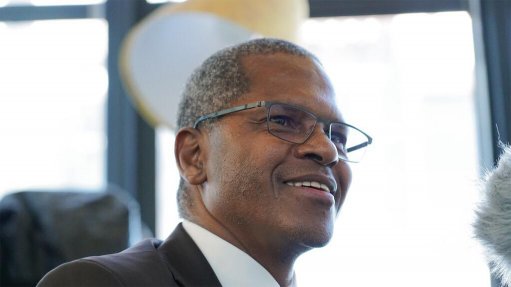
Cooperative Government and Traditional Affairs Minister Velenkosini Hlabisa
The FW de Klerk Foundation on Tuesday expressed confidence in the newly appointed national executive of the Government of National Unity (GNU), saying it would increase transparent governance and accountability to the people of South Africa.
President Cyril Ramaphosa on Sunday announced 32 ministerial positions of the GNU, with 20 position being filled by the African National Congress (ANC), six by the Democratic Alliance (DA) and the remainder split among a crowd of smaller coalition parties.
After losing its outright majority in the 2024 national and provincial elections, the ANC was forced to form a coalition government.
The foundation’s executive director Christo van der Rheede said the announcement of the new Cabinet marked a significant step forward for South Africa’s GNU.
“The formation of the new Cabinet, under President Ramaphosa’s leadership, reflects a commitment to collaboration and the Constitution’s principles. The role of the Cabinet is to work together to approve governmental policies, ensure they align with national priorities and laws and monitor their implementation across the various ministries,” he explained.
Van der Rheede added that this Cabinet formation acts as a crucial step in ensuring the government addresses the needs of all South Africans.
The foundation said it stands ready to support and monitor the GNU's progress, advocating for policies that uphold constitutional values and foster national unity.
He also noted the diverse representation in the Cabinet, saying it is a testament to the willingness of these parties [in the GNU] to put aside differences for the nation's common good.
Van der Rheede said the collaborative sharing of key ministries such as Agriculture, Basic Education, Home Affairs, Sports, Arts and Culture and Public Works and Infrastructure between different parties is a promising step towards fostering unity and ensuring accountable, inclusive governance.
“…it is a positive move towards a unified and prosperous South Africa,” said Legal Officer of Constitutional Programmes Ismail Joosub.
MUNICIPAL GOVERNANCE
Meanwhile, AfriForum offered its cooperation to the newly appointed Cooperative Government and Traditional Affairs Minister Velenkosini Hlabisa, making several suggestions on how municipal governance can be improved.
In a letter addressed to Hlabisa, AfriForum requested the Minister to regularly evaluate the performance of municipalities against established benchmarks and indicators to identify areas for improvement.
The organisation explained that it is important that national government intervenes where municipalities and provincial administration fail.
Hlabisa must facilitate cooperation between different levels of government and public enterprises – national, provincial and local – to ensure sustainable and integrated service delivery, AfriForum suggested.
The department must also act as mediator in resolving conflicts and disputes between municipalities and other stakeholders, especially in relation to utilities such as Eskom and Rand Water, it said.
The organisation also wants improvement in municipal water and sewage infrastructure, and that electricity be distributed at municipal level.
Grants must be awarded to municipalities to support various projects and operational needs and that municipalities must be monitored and supported to improve financial management practices to ensure accountability and efficient use of resources, it said.